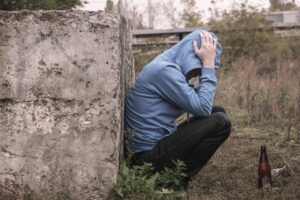Isaiah 66: 10-14; Psalm 66; Galatians 6: 14-18 (RM) or 7-16 (RCL); Luke 10: 1-12, 17-20 (RM) or 1-11, 16-20 (RCL.)
I collect lector bloopers.
But this one wasn’t exactly a blooper – more like a slip and fall.
The first reading was from Isaiah chapter 66, the verse was 11. The lector had been proclaiming the reading smoothly and unremarkably enough, until she reached the word “breast.” She sort-of sprawled all over the embarrassing word and it came out something like “breaugh.”
Perhaps it was contextual – this was rural Vermont some 25 years ago. Still, if there are “seven words you can’t say on television,” there may be words that you can’t say in church. Maybe it’s not that they’re dirty, just highly intimate.
Female-identified imagery for God is not a contemporary invention. If we probe, we can find traces of profoundly beautiful images and analogies that work inclusively to encompass a very full range of human experience. In this Sunday’s first reading and Gospel, we have two different but parallel illustrations of potentially female-friendly religious concepts. But the imagery is only unfolded by way of interpretation and, as often happens, more than one interpretation is possible.
Read on a surface level, the parental tenderness and compassion of God in Isaiah 66 is simply breathtaking. The rich nourishment of abundant breast milk, poured out like gushing rivers of water, symbolizes life itself in a parched desert climate. A suffering and repentant people, dragging home from exile and in desperate need of comfort and consolation, are fed to their fullness by the very body of the holy city, then comforted and nourished in turn by their God.
But nestled in the middle is the sentence, “I will extend prosperity over her like a river, and the wealth of the nations like an overflowing torrent.” Think about that. Who are “the nations?” All of humanity who are not of the Hebrew people, presumably. And where does their “wealth” come from? It wasn’t voluntarily surrendered. This has to refer to plunder (see Isaiah 9:3) taken in conquest: booty, stolen goods, treasures and household possessions, maybe even enslaved persons.
The part of this passage that needed to be clearly articulated wasn’t so much the word “breast,” it was the ambiguity (to say the least) of the source of this wonderfully generous comfort.
In the Gospel, Jesus is depicted expanding the scope of his mission beyond the group of twelve key disciples (“twelve” being the number that could call to mind the twelve tribes of Israel, and thus point to an internal Jewish movement). Now the number of missioners is up to 70 or 72, depending on which source you read. “Seventy” was the number of distinct countries in the known world at that time, so the mission now encompassed the entire world. And those called to go forth in pairs may well have included the women who travelled with the entourage anyway.
This text can mark an exciting affirmation of the inclusivity of the disciples sent on mission – or not. It depends on your interpretation. For example, Jeannine K. Brown writing in Working Preacher highlights the expansion of those commissioned to go out into often unwelcoming, grueling, even dangerous circumstances, with some urgency, as a nod toward gender inclusivity. Already in Luke 8:1-3 the Twelve and the women who followed and supported Jesus were named together. In Luke 24:33 women and men as a group heard the news of the resurrected Christ.
Barbara E. Reid O.P. and Shelly Matthews, in the Wisdom Commentary, see just the opposite. They find that in this passage Luke uses the warlike imagery of eschatological battle against the cosmic forces of evil to stress the need for virile combat soldiers, to which Jesus gave authority in his name to destroy demons.
So where does this leave us? Perhaps with a call to ministry combining compassionate healing and the strength of our convictions, taking time and effort to comfort those who are aching for wholeness and strength. And at the same time, in the words of Dianne Bergant, deploying the “many ways we can cast out the demons that hold our world by the throat: …demons of poverty and oppression, demons of addiction and slavery … [and] demons of hatred and injustice.”
© Susan K. Roll
Susan Roll retired from the Faculty of Theology at Saint Paul University, Ottawa, in 2018, where she served as Director of the Sophia Research Centre. Her research and publications are centred in the fields of liturgy, sacraments, and feminist theology. She holds a Ph.D. from the Catholic University of Leuven (Louvain), Belgium, and has been involved with international academic societies in liturgy and theology, as well as university chaplaincy, Indigenous ministry and church reform projects.




